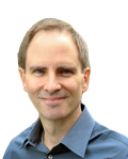Health
How (Another) Industry Tried to Fool Us About Our Health
Oil, tobacco...now the sugar industry is caught trying to manipulate consumers.
Posted September 21, 2016
The German political philosopher and historian Karl Marx observed that history repeats itself—the first time as tragedy, the second as farce. What about the third time?
For decades, Exxon actively sowed doubt about the scientific consensus about human-induced climate change that its own scientists had previously confirmed in 1982, Inside Climate News reported last year. This pattern of denial of the damages inflicted by an industry mimicked the tobacco industry’s denial of the deadly effects of cigarette smoking, as a previous post discussed.
Here we go again!
A new report in JAMA Internal Medicine describes in detail—using internal industry documents—how the sugar industry actively sought to refute that sugar led to heart disease. An industry association called Sugar Research Foundation sponsored research published by Harvard University scientists in the 1960s aimed at leading the charge to deflect attention from the health effects of sugar by placing the blame on fat in American diets.[1]
It’s safe to say that industry-sponsored science ranges from absolutely reliable, solid research to mere propaganda in which scientists and sometimes academic institutions serve industry interests before the public, before the truth.
Fool me once, shame on you. Fool me twice, shame on me. Fool me over and over again, and we really have a systemic problem here!
What could that mean? For one, money corrupts quite nicely in science as elsewhere. Scientists may balk, but conscious and unconscious processes alike serve the scientists needs for prestige, continued funding, and so on to distort not only the questions asked but the answers found. Apparently, the authors of the sugar-industry funded research were fine scientists run amok. External pressures, particularly the sometimes desperate need to keep the flow of money funding one’s expensive laboratory, shape findings in favor of the money. Industry works toward its own ends by corrupting science. And that’s because there are a multitude of ways that industry can potentially harm the public good (even though obviously not all industry does so).
The Powers We Give Up
Government agencies, academics, and industry all function as powerful forces shaping modern knowledge of the world. We’re utterly dependent on these institutions to know what’s safe, what’s dangerous, what’s healthy, and what’s going to sicken or kill us. That’s because we no longer live in the type of world in which everyone’s a scientist—going out into the world to observe it on our own, how it responds to our actions, informed by the compiled knowledge of our forebears, gathering immediate data and observations through our own senses.
The Native Americans that European explorers and settlers met, like other indigenous human societies over the last two hundred thousand years of human history, gathered intimate, detailed knowledge through painstaking observations repeated over and over. We call it Traditional Ecological Knowledge (TEK). It included uses for hundreds or thousands of plants, animals, and substances in their environs. This knowledge was gathered and passed down through generations by being compiled in myths, lore, simple facts, and stories.
Many people in our modern world denigrate such knowledge and see it as automatically less than the powerful corpus of modern science pulled together over the past five centuries. But it has one advantage—it was much more participatory. Although many societies had shamans and priests, the vast majority of people were not excluded from the production and carrying of vital environmental and health knowledge, as we are today.
An Ethics Problem
As I write in chapter 1 of my book Invisible Nature: Healing the Destructive Divide between People and the Environment, our near-complete dependence on institutions of government, industry, and science is a big problem. First, it opens us to manipulation. Our personal ignorance about how the world works means basically that these institutions decide for us what’s healthy, what drugs are safe, and what foods we should eat. Is fat safe this year? The complexity of these questions means that outside interests, usually companies and industries who have not our concerns but their own, can manipulate our choices by shaping the information we have access to, like the idea that sugar is OK for our hearts, and fat not.
The problem runs even deeper: by building and holding the knowledge that we depend on, that shapes our lives, corporations and government entities necessarily assume some of our ethical responsibility for ourselves. That is, we hand over some of what I call our “ethical subjectivity”—our own participation in the ethical choices of our lives.
They decide to promote or demote sugar, fat, soft drinks, and other foods, drugs, or choices more generally. Sure, we can make our own choices, but only within a relatively narrow range of options and often without sufficient knowledge.
Regaining Some Control: Public Participation in Science
Various types of public participation in science have emerged over recent decades in answer to exactly these types of concerns—to gain more control over the knowledge process, to regain some semblance of control over one’s life and personal choices. There’s a long history of “citizen science” from serious astronomy projects surveying exoplanets to the early work of AIDS activists to seek better treatment methods and perhaps a cure.
One type of citizen science that draws my attention are people’s efforts to monitor toxicants in their neighborhoods and cities through so-called “bucket brigades”—equipment and techniques for sampling the air and getting it analyzed for the presence of harmful chemicals. A special bucket device was developed by an environmental engineer to allow citizens to pull in air to be sent to a laboratory. These were first used in California’s Contra Costa County to allow for more frequent and better sampling of the air near Richmond’s petroleum refineries—air often found to be causing illnesses in the largely African American population around the facility. An effort to seek more environmental justice in the siting and control of polluting industries, the bucket brigades have been used also in “Cancer Alley” near the intensive range of chemical plants along the lower Mississippi River.
In highly technological modern society, citizens may never regain full control over the knowledge that informs and shapes their daily lives, but showing that we’re watching cannot help but keep potentially harmful industries in check.
[1] http://www.npr.org/sections/thetwo-way/2016/09/13/493739074/50-years-ag…




